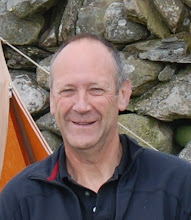So what am I doing here?
I am working as a tourism adviser with Mercy Corps. Mercy Corps is an international non government organisation it "exists to alleviate suffering, poverty and oppression by helping people build sevire, productive and just communities" World wide MC operates in more than 35 countries specialisng in post conflict development. It has been working in Mongolia since 2000 and it has one goal “To support rural communities to mobilise resources to meet their economic and social needs. At present Mercy Corps works on three main projects,- (for more details follow the link to the website on the blog) two of which are largely USAID funded. I am working in the Rural Agribusiness Support Program team.
Mercy Corps employs approx 120 people in Mongolia of whom 4 are westerners;60 are based in the UB office, the rest in aimag offices. The work culture is very western, we work an 8 hour day, 9 to 6 with an hour for lunch and many colleagues work extra hours.
Tourism is seen a potential alternative livelihood for rural communities in general and herders in particular. At present tourism earnings amount to 10% of the country foreign earnings. After agriculture it is the second or third largest employer.
Independent travel for foreigners is difficult,- there are no road, and signposts, and few people outside uB speak English. The tourism industry is dominated by tour operators.
So if there is such a flourishing private sector why should an ngo funded largely by USAID get involved? There are several reasons: -
· although international tourist arrivals continue to grow at 10% or more a year It is difficult for herders to take advantage of the growth and diversify into tourism. They lack capital to buy gers, they do not understand expectations of tourists and have little business experience. MC can provide support for loans, and both business development training and more technical tourism training, -guiding, cultural differences etc
· There is also a concern that tourism growth will destroy itself by poorly planned development. So intervention is justified to promote responsible tourism throughout the industry from initial land use planning and environmental impact assessments to tour operators and guides.
So that’s the background, what do I actually do? Well there are three main projects:
1) Developing training. The Mongolian Universities are producing many tourism graduates and the big tour operators train their own staff but there are key training needs not met by these trainers. .At aimag level the regional administration, the aimag staff have little understanding of tourism development, land use planning and environmental assessment. Knowledge is also a barrier to herders entering tourism . So I am meeting with training providers, tour operators and organising workshops to complete training needs analysis. Then I will be arranging training of trainers, trying to develop capacity of business development service providers at regional level.
2) Second area of work is more academic, designed to influence policy and guide future interventions if any by donors. Value Chain Analysis is the fashionable paradigm for international development studies at hte moment. The methodology derives from the work of Michael Porter from Harvard Business School in 1980s and I am arranging a study looking at how value chains vary between market segments. In other words do Japanese western or domestic tourists spend their money in different ways, and linkages with the local economy, how much money filters down to herding communities.
3) The third area is developing work already started on responsible tourism certification scheme. This project started 2 years ago and stalled because of conflicts within the group and I have been trying to bring the partnership back together again. In some ways very similar to partnership working in UK except that here with less well developed institutional framework personal disagreements and conflicts are more open.
I am fortunate to be working in an efficient well run international ngo where everyone speaks English and in an industry where most people also speak English. Other volunteers are less fortunate I also enjoy the differences to western Europe and working in southern England: the main economic development problems are rural and partly at least ecological, how do you manage the rangeland to provide secure livelihood; environmental concerns, desertification, overgrazing have a real connection with life styles. (One of my most depressing recollections of working in UK was an opinion poll of residents concerns about the environment. The condition of pavements and dog fouling where considered the most serious environmental problems).
Working in a foreign country relying on an interpreter always has its challenges. I find peaks and troughs of elation and concern are greater. I am pleased to have the chance to use a far wider range of skills and competencies than I was able to use on a day to day basis in the UK.

No comments:
Post a Comment